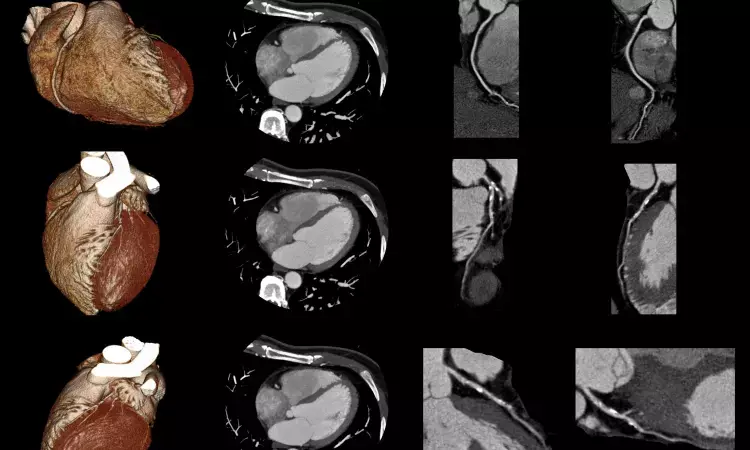- Home
- Medical news & Guidelines
- Anesthesiology
- Cardiology and CTVS
- Critical Care
- Dentistry
- Dermatology
- Diabetes and Endocrinology
- ENT
- Gastroenterology
- Medicine
- Nephrology
- Neurology
- Obstretics-Gynaecology
- Oncology
- Ophthalmology
- Orthopaedics
- Pediatrics-Neonatology
- Psychiatry
- Pulmonology
- Radiology
- Surgery
- Urology
- Laboratory Medicine
- Diet
- Nursing
- Paramedical
- Physiotherapy
- Health news
- Fact Check
- Bone Health Fact Check
- Brain Health Fact Check
- Cancer Related Fact Check
- Child Care Fact Check
- Dental and oral health fact check
- Diabetes and metabolic health fact check
- Diet and Nutrition Fact Check
- Eye and ENT Care Fact Check
- Fitness fact check
- Gut health fact check
- Heart health fact check
- Kidney health fact check
- Medical education fact check
- Men's health fact check
- Respiratory fact check
- Skin and hair care fact check
- Vaccine and Immunization fact check
- Women's health fact check
- AYUSH
- State News
- Andaman and Nicobar Islands
- Andhra Pradesh
- Arunachal Pradesh
- Assam
- Bihar
- Chandigarh
- Chattisgarh
- Dadra and Nagar Haveli
- Daman and Diu
- Delhi
- Goa
- Gujarat
- Haryana
- Himachal Pradesh
- Jammu & Kashmir
- Jharkhand
- Karnataka
- Kerala
- Ladakh
- Lakshadweep
- Madhya Pradesh
- Maharashtra
- Manipur
- Meghalaya
- Mizoram
- Nagaland
- Odisha
- Puducherry
- Punjab
- Rajasthan
- Sikkim
- Tamil Nadu
- Telangana
- Tripura
- Uttar Pradesh
- Uttrakhand
- West Bengal
- Medical Education
- Industry
High-sensitivity cardiac troponin T levels and dyspnea predict greater mortality risk in among patients seeking ED care

Sweden: According to a study published in BMC Emergency Medicine, researchers from the Department of Emergency and Internal Medicine, Skåne University Hospital, have shown higher high-sensitivity cardiac troponin T (hs-cTnT) is tied significantly to higher 3-month mortality.
They also mentioned that those with higher hs-cTnT levels were older with more comorbidities, severe symptoms, more hospitalizations, more deranged vitals, fewer normal ECGs, and more ECGs with ST depression.
Their correlation analysis shows an association between hs-cTnT elevated levels and age > 75 years, congestive heart failure and incidence of comorbidities.
Patients seeking care at the ED (emergency department) with chest pain but without MI have higher cardiac troponin levels. There needs to be more clarity on the clinical importance of this observation.
In the present study, researchers hypothesized that elevated hs-cTnT levels in patients seeking the ED with acute dyspnea have increased mortality risk.
Total 1001 patients were included in the study and were categorized into three groups based on hs-cTnT level of <15, 15–100 and > 100 µg/l. With reference to hs-cTnT < 15 µg/l, fully adjusted HRs for 3-month mortality, for hs-cTnT 15–100 and > 100 was 3.682 and 10.523 respectively.
Researchers concluded that elevated hs-cTnT is a relevant marker of poor prognosis in acute dyspnea patients without MI. However, further validation and clinical testing are warranted.
They mentioned it as an essential biomarker and an indicator for a thorough investigation.
The study’s limitations are no access to a second hs-cTnT, inability to separate myocardial injury from a type 2 infarction, and inability to rule out the possibility that some Type 2 MI still remained within the cohort.
The strength includes carefully characterising patients admitted to ED due to acute dyspnea and specific set-up.
Further reading:
Wessman et al. Myocardial injury, defined as elevated high-sensitivity cardiac troponin T is associated with higher mortality in patients seeking care in emergency departments with acute dyspnea. BMC Emerg Med 23, 40 (2023). https://doi.org/10.1186/s12873-023-00787-w
BDS, MDS in Periodontics and Implantology
Dr. Aditi Yadav is a BDS, MDS in Periodontics and Implantology. She has a clinical experience of 5 years as a laser dental surgeon. She also has a Diploma in clinical research and pharmacovigilance and is a Certified data scientist. She is currently working as a content developer in e-health services. Dr. Yadav has a keen interest in Medical Journalism and is actively involved in Medical Research writing.
Dr Kamal Kant Kohli-MBBS, DTCD- a chest specialist with more than 30 years of practice and a flair for writing clinical articles, Dr Kamal Kant Kohli joined Medical Dialogues as a Chief Editor of Medical News. Besides writing articles, as an editor, he proofreads and verifies all the medical content published on Medical Dialogues including those coming from journals, studies,medical conferences,guidelines etc. Email: drkohli@medicaldialogues.in. Contact no. 011-43720751


